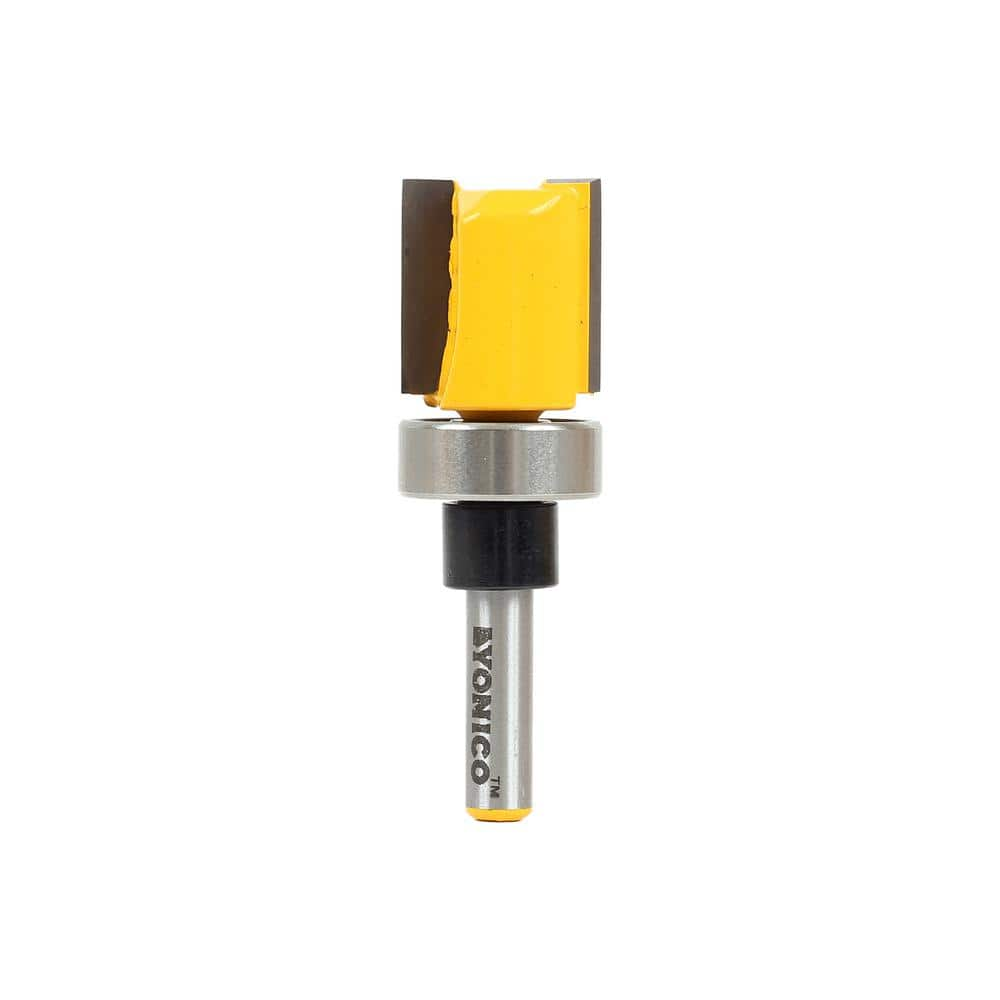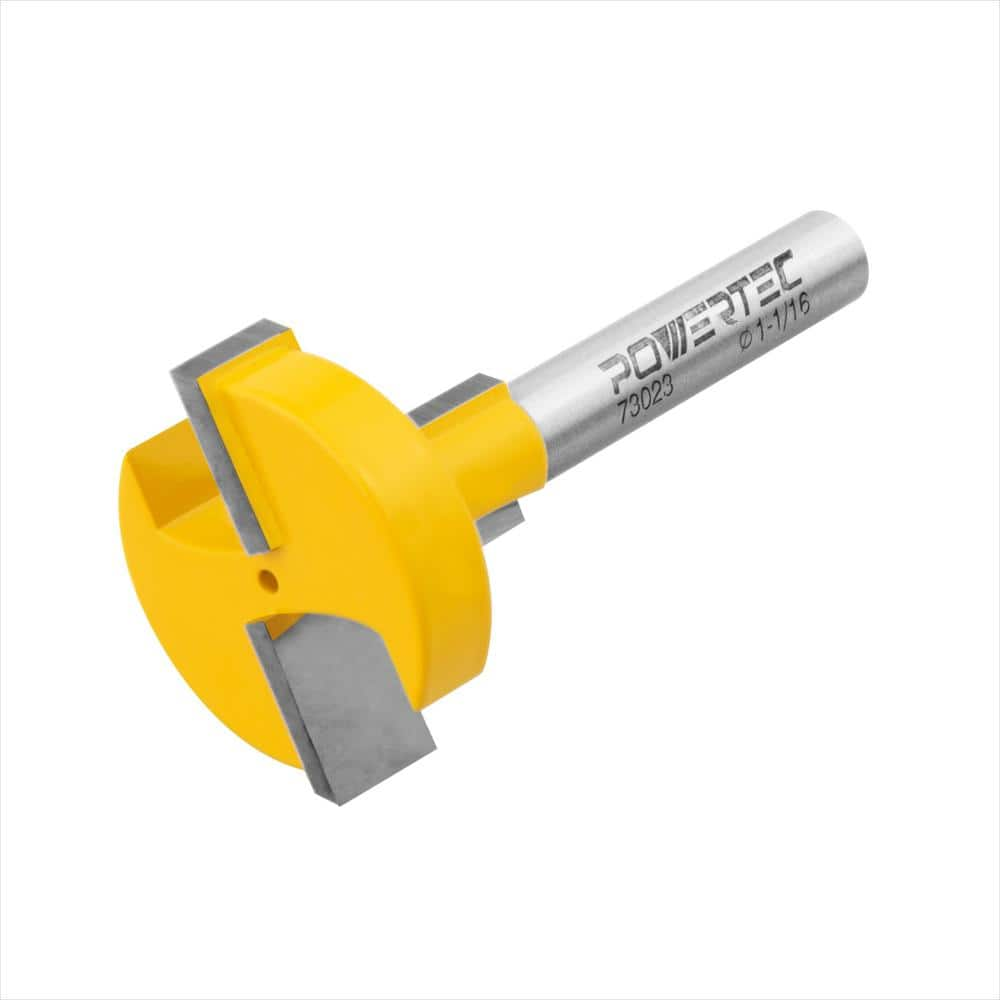Best Router Bits for Your Project

Last updated September 7, 2023
“Router bits” is a catch-all term used to indicate bits that create joints, grooves and profiles. While these are typically used by general contractors, homeowners can add them to their tool box for a variety of different purposes. Use this guide to learn the difference between each type so you can select the best router bits for your needs.
Table of Contents
Common Router Bit Sizes
Must-Have Router Bits
Router Bit Sets
Specialty Router Bits and Sets
Carbide-Tipped vs. Hardened Steel (HSS)
Common Router Bit Sizes
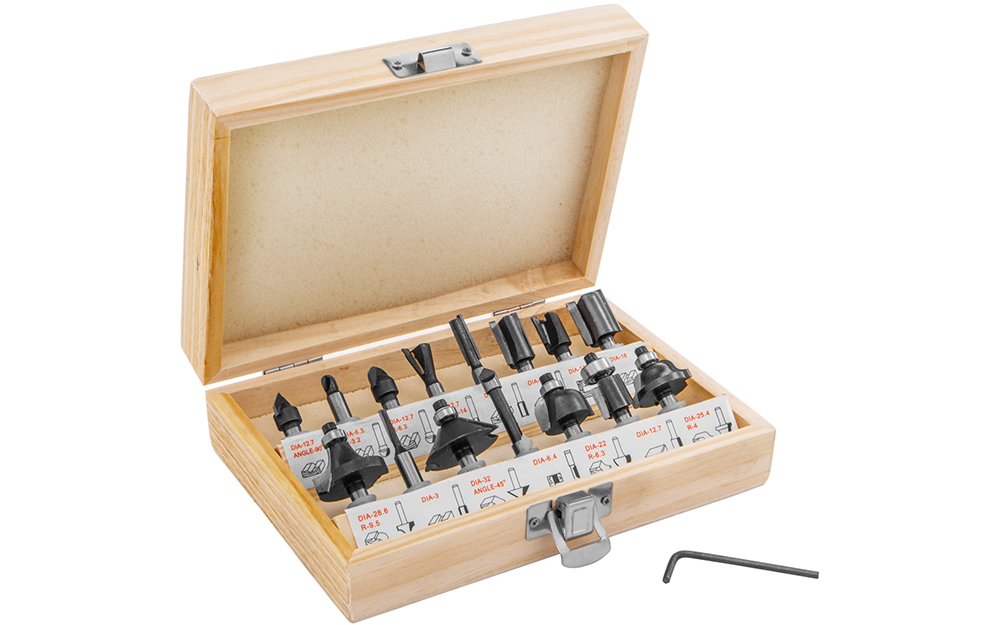
Router bits come in a few different sizes, but for general purposes, you will almost always reach for a 1/2-inch router bit. These offer better stability and overall performance than smaller router bits.
For fine or slight edge work, a 1/4-inch bit may be preferable. However, for most people, the same work can be done with 1/2-inch router bit sets. For that reason, you'll almost always want to start out with 1/2-inch bits unless you know you're doing specialized or small scale work right from the start.
Must-Have Router Bits
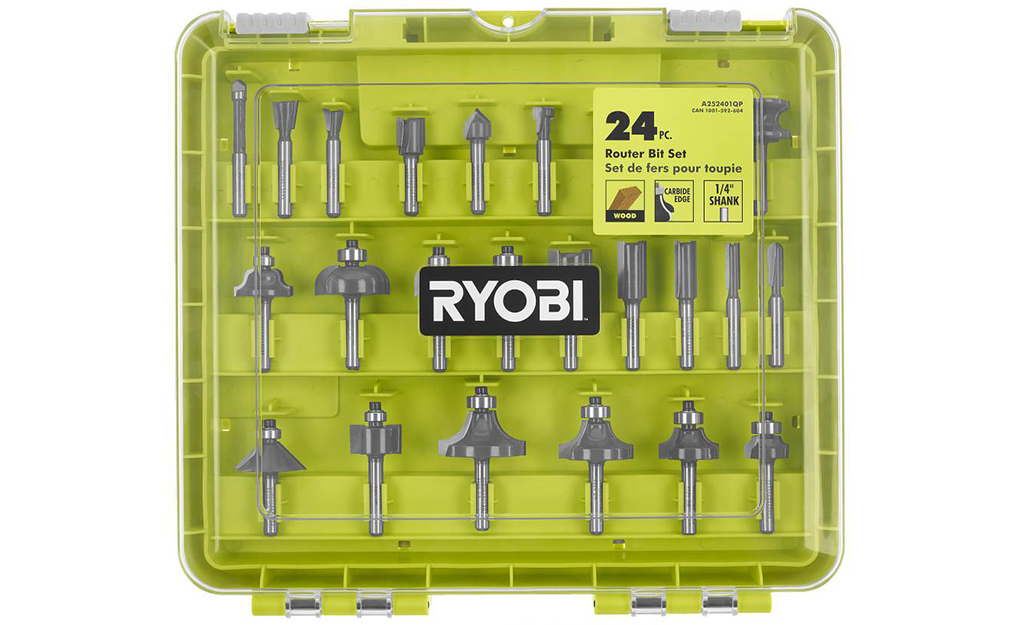
There are a few bit types that most people are going to reach for regularly. Here are the must-have router bits you need in your collection:
- Straight bits: The most common type of bit on the market and typically the most useful for newcomers and pros alike, straight bits have a side and bottom cutting edge. Designed with straight or spiral flutes, you can use these for functional or more decorative cuts. Straight router bits
are used for rabbeting, tenons, inlays, mortises, dados and box joints. - Rabbeting bit: Used to create rabbets and lap joints, these are great to have if you need identical rabbets for a project like creating a picture frame from scratch.
- Ogee bits: These are typically used to create details on furniture, shelving or wall moulding. Roman ogee bits are a commonly used variation of the more standard ogee bit type.
- Round-over bits: Typically used to create decorative edges and designer profiles on furniture, round-over bits are useful for interlocking joints as well.
- Chamfer bits: Chamfer bits are most commonly used to make beveled edges in your work material.
Router Bit Sets
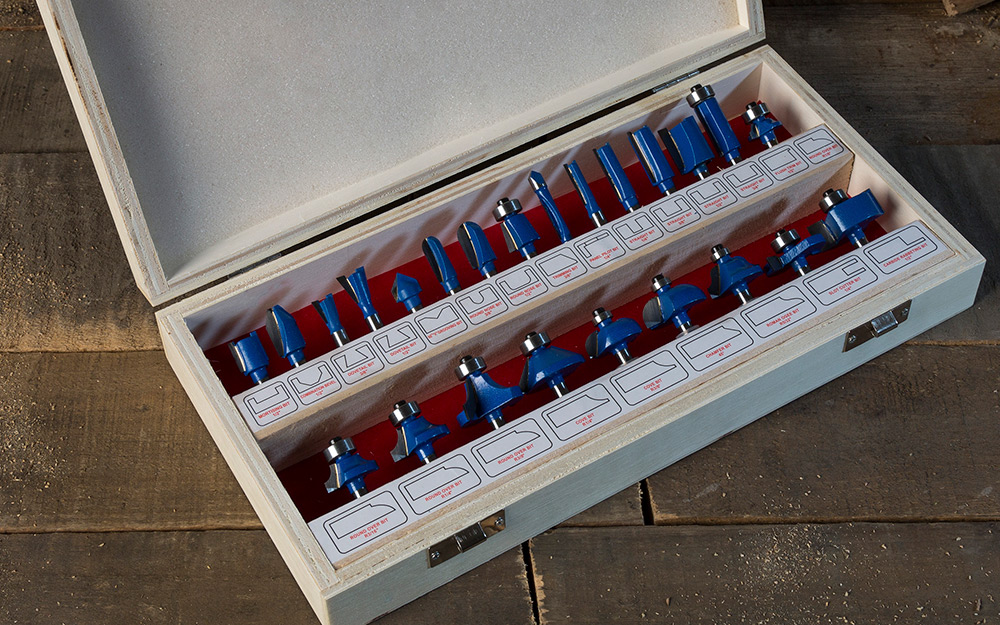
Individual router bits can help you tackle a number of different projects, and for most applications, having the bits listed above is a great start. In many cases, you can get all of those bits and some other commonly used options by buying a router bit set. You'll typically also get a case designed to organize and sort your router bits so you can always find the one you need.
Depending on your needs and the work you do, the router bit set that works best for you can vary. However, there are some router bit sets that hit the mark for most people. These typically include:
- 12-piece and 15-piece router bit sets: These often include straight bits, ogee and Roman ogee bits, chamfer bits, paneling bits, mortising bits, cove bits, V-groove bits and dovetail bits.
- 24-piece and 35-piece sets: Offering more specialized bits, these large sets can come in handy for a variety of applications. They feature standard bits like straight, ogee and mortising bits, but they may also include rabbeting bits, hinge mortising bits, round-over bits, half-round bits and trimming bits. Some larger sets also include multiple sizes of common bits, like 1/4-inch and 1/2-inch radius bits.
- Oversized router bit sets: Offering upwards of 80 pieces, oversized sets provide the basics and a whole lot more. Common additional bits in oversized sets include double Roman bits, classical bits, wave edge bits and more. Extra-large sets usually feature different sizes of common bits like ogee, round-over and chamfer bits as well.
Specialty Router Bits and Sets
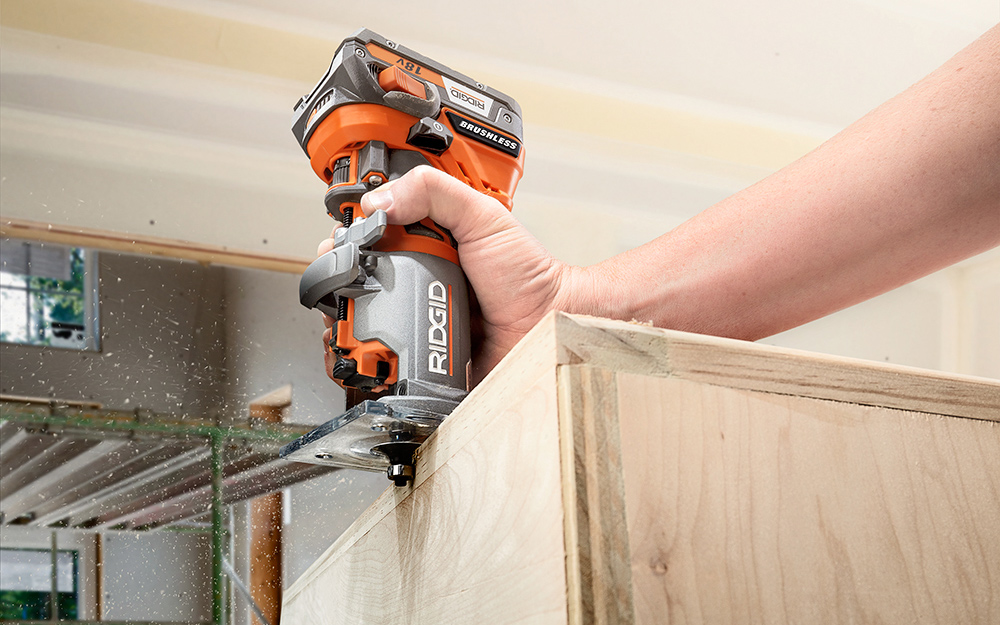
If you're just starting out, the five essential bits listed above or a quality set can be an excellent place to start. However, there are many more router bits on the market. Here are a few specialty router bits you can buy, as well as how they can be used:
- Cabinet door router bit sets: Typically made for raised panel cabinet doors, cabinet door router bits are purpose-specific tools that can make cabinet work easier. Standard sets include four pieces.
- Fiberglass router bits: Trim fiberglass laminate boards with ease. Having these handy can also keep you from damaging your more delicate bits with hard fiberglass.
- Finger joint bits. Capable of helping you create finger joints, these are sometimes used for cabinet drawers and similar items where two pieces of wood must be joined.
- Frame and panel or stile and rail router bits: Frame and panel router bits are commonly used to add decorative elements to furniture and cabinetry.
- Handrail router bits: These are used to provide decorative details and accents for staircases and handrails.
- Keyhole router bits: These are used to create slots for hanging picture frames and decorative wood pieces.
- Laminate router bits: Made for laminate and veneer cutting, this specialized router bit is often used for creating or repairing plastic laminate furniture pieces.
- MDF router bits: These make clean cuts in MDF, which can be a problematic material for router bits designed for natural wood.
- Metal router bits: Similar to standard woodworking router bits, these harder bits are designed specifically for use with certain types of metal.
- Miniature router bit sets: These get used for extra-small and very fine detailed projects. They typically feature the same types of bits, only reduced in scale.
- Plywood router bits: These are designed specifically for making cuts in plywood, these can be useful for cabinet-making, furniture and more.
- Tongue and groove router bit sets: These are designed to help you create even, flat joints for flooring, wainscoting, wood panels and tables.
Carbide-Tipped vs. Hardened Steel (HSS)
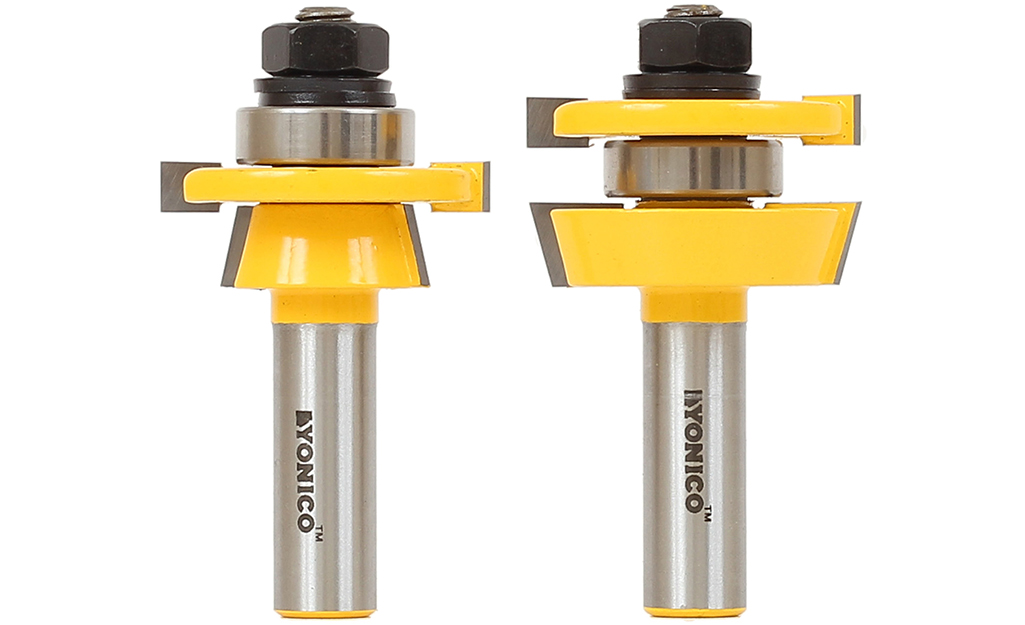
When you're shopping for individual router bits or router bit sets you'll mainly see two different types: carbide-tipped bits and hardened steel (HSS) bits. Solid carbide tipped router bits and tungsten bits may also be available.
While carbide-tipped and HSS bits of the same size and type perform the same function, there are a few key differences to consider.
- Carbide-tipped router bits typically cost more than HSS bits.
- Carbide-tipped bits last considerably longer. A quality carbide-tipped bit may last up to 50 percent longer than a standard HSS bit.
- HSS bits are more likely to dull due to heat and friction than carbide-tipped bits. If you use HSS bits, you'll need to inspect them regularly to make sure they haven't dulled, as this could be lead to poor performance in use.
So which style is right for you? Carbide-tipped bits are the high-quality option, and they're an excellent choice for professionals. They'll also last longer, so if you use your router bits regularly, they'll offer better performance for an extended period of time.
If you're new to using a router or are still learning the ins and outs, you may be able to save money by starting with HSS bits and upgrading later. Individuals who need a special type of router bit for a one-off job may also benefit from buying HSS router bits, since longevity is less of a concern.
Knowing the best router bits for your home improvement projects is made easy with this handy guide. Use The Home Depot Mobile App to view our wide selection to find what you need.
